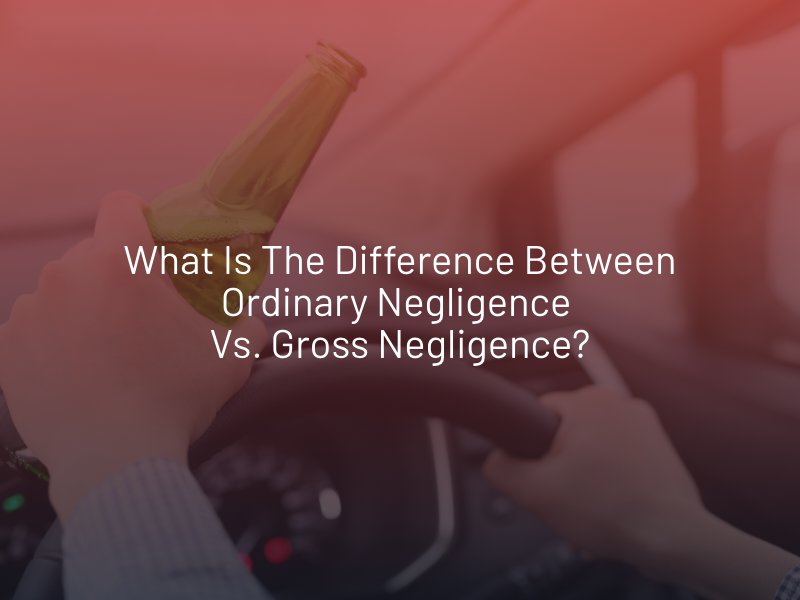What is the Difference Between Ordinary Negligence vs. Gross Negligence?
In some personal injury cases, a defendant may not only have been negligent but acted with extreme recklessness or a conscious disregard for others. This is known as gross negligence, which is much harder to prove than ordinary negligence.

What is Negligence?
Negligence is an individual or entity’s failure to exercise a duty of care in the same way that a reasonable person would under the circumstances. The concept of negligence is what most personal injury cases are based on. The court must decide whether someone acted negligently and therefore caused injuries to others.
The plaintiff (victim) must prove that the defendant (at-fault) party (1) owed them a duty of care to prevent them from harm, (2) neglected that duty, (3) directly caused their injury, (4) which resulted in damages (financial and other losses). As an example, all drivers owe a duty of care to others on the road to drive safely and follow traffic laws. If a driver runs a red light and hits a pedestrian, they violated their duty of care and therefore committed an act of negligence.
Ordinary Negligence vs. Gross Negligence
There are two main types of negligence in personal injury cases: ordinary negligence and gross negligence. The most significant difference between the two is the severity of the breach of duty of care.
- Ordinary Negligence: the at-fault party breaches their duty of care in some way that causes injury or death to another person.
- Gross Negligence: the at-fault party demonstrated an extreme indifference or a reckless disregard for another person’s safety. Gross negligent conduct is much more severe than ordinary negligence, as it is willful behavior and indifference to the need to use reasonable care, even though their behavior can cause foreseeable harm.
Establishing gross negligence with the help of an experienced personal injury lawyer in Las Vegas will depend on the circumstances, but the facts of how the injury occurred typically speak for themselves.
Examples of Ordinary Negligence and Gross Negligence
Ordinary Negligence
- A driver failing to yield to oncoming traffic and causing a car accident and injuries.
- A store owner failing to place a wet floor sign alerting customers to be careful, leading to a slip and fall injury.
- A truck driver following another vehicle too closely, not leaving enough room to stop and causing a Las Vegas trucking collision.
- Most accidents are due to ordinary negligence. These injuries are unintended, but the wrongdoer can still be held legally liable for damages.
Gross Negligence
- A driver speeding through a stop sign with heavy pedestrian traffic when the pedestrians have the right of way.
- A doctor prescribing a patient a drug that the patient’s medical records list as a drug allergy.
- A trucking company intentionally overloading a vehicle to deliver an order on time.
These actions are deliberate. When gross negligence contributes to serious injury to others and damage to property, victims may be entitled to punitive damages. This type of compensation is only awarded in cases of extreme carelessness, as it is intended to punish the defendant.